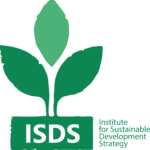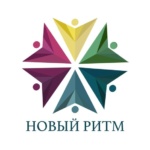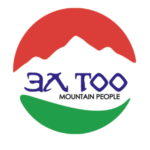Security and resilience

Ensuring security and resilience, which includes the ability of individuals, communities, and organizations to withstand, adapt to, and recover from a wide range of challenges and threats, is key to the well-being of any region. Central Asia, in particular, faces a unique combination of threats that impact its people's lives and futures.The main security threats in the Central Asian region are drug and human trafficking, armed border conflicts, inter-ethnic clashes, the rise of nationalistic rhetoric directed at ethnic minorities and neighboring countries, climate change and environmental degradation, revolutions, non-existing or limited civic space, low human development indexes, poverty, distribution of natural resources, and others.
Despite these security threats in the region, local civil society organizations continue protecting and upholding the rights of local vulnerable communities and individuals. However, they are targeted by the state which limits their civic space, consequently negatively affecting their security and resilience. Increasingly, organizations are forced to close down and operate in the gray zone, which hinders their interventions and long-term sustainability. Importantly, personal security, well-being, and safety of activists on different levels within these organizations, is often disregarded by the organizations and the activists themselves, overshadowed by their focus on broader goals.
Central Asia Solidarity Groups primarily works with security and resilience within the Human Security framework, which encompasses economic, food, health, environmental, personal, community, and political security. This framework changes how we understand global vulnerabilities. It moves away from the traditional focus on national and military security. Instead, it argues that real security should focus on individual people and communities, not just at the national level. It allows for gaining a deeper understanding of the local context, including the root causes of insecurities, their interlinkages, and their impact on different regions and groups within countries. It is often the case that the international community, as well as the Central Asian states, address post-conflict context only, and ignore the need to proactively and continuously work with enhancing the security and resilience of individuals, local communities, as well as civil society organizations.
Our Thematic Vision
Central Asian communities and societies, supported by the human security framework, are growing more resilient and secure, helping local communities and organizations to better handle conflicts for a sustainable and stable future.
Our areas of work
INSTITUTIONAL SECURITY OF CIVIL SOCIETY ORGANIZATIONS
-
- Building Resilience Through the Human Security Framework: recognizing the misalignment of many international entities with the genuine causes of conflict, we aim to enhance the resilience of civil society organizations by integrating various aspects of the human security framework. The framework enables civil society organizations to counteract the sparse focus on post-conflict regions.
- Addressing Root Causes of Conflicts: equipped with a deepened understanding of the human security framework, we aim for civil society organizations to proactively address the underlying reasons for conflicts.
- Enhancing Organizational Capacity: ensuring that civil society organizations have the essential tools and knowledge, we aim to enable them to function effectively in conflict-prone areas and in post-conflict processes.
SECURITY AND RESILIENCE OF LOCAL COMMUNITIES
-
- Mainstreaming Holistic Security Approaches: with limited economic opportunities, patriarchal norms, and discrimination causing community insecurities leading to violent conflicts, we intend to incorporate holistic security methodologies targeting local communities.
- Strengthening Community Resilience: addressing widespread issues like climate change and scarce resources, our goal is to introduce methodologies promoting food sovereignty and community-based conflict management.
- Promoting Rights-Based Approach: we aim to ensure that the rights-based approach is mainstreamed in the activities with partners in the region and involves duty-bearers, which enables the right holders to demand their rights and increase the capacity of duty-bearers to provide the rights.
PERSONAL SAFETY AND WELL-BEING OF ACTIVISTS
-
- Building Personal and Communal Resilience: activists in Central Asia face both external and internal threats, including emotional burn-outs and trauma. Our goal is to strengthen personal and community resilience among activists through trauma-informed trainings and integrated security methodologies.
- Creating Safe Spaces: being an activist or civil society representative in Central Asia can be dangerous and harmful in a number of ways. We aim to create spaces for activists that allow for a break from harsh conditions, i.e. retreats, residencies etc.
Our target groups

Local communities

Activists

Civil society
organizations

Decision-makers
Our local partners
Related explainer clips
Central Asia's water crisis: a human security perspective
Authoritarianism in Central Asia: Current State and Tendencies of the Regimes
Central Asia on the Global Map
Central Asia and the Myth of Radicalization






